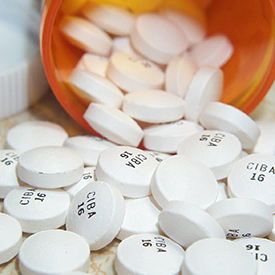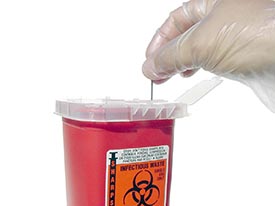| Waste Programs Division: Solid Waste Management: Inspections and Compliance |
|
The Solid Waste Inspections and Compliance Unit conducts inspections and provides compliance assistance in the following areas:
Automotive and household batteries are recyclable. To locate a nearby battery drop off site or recycler contact Earth 911 Another option is to bring your batteries to a household hazardous waste collection site or save them for a household hazardous waste collection event in your area. Contact your local city, town or county for times and locations. Lead-Acid Battery Collection/Recycling Authorization If the facility wants to be an approved battery collection site, complete and return the Battery Collection/Recycling Facility Authorization Application to: Arizona Department of Environmental Quality
The handling and disposal of used home generated medical sharps such as needles, syringes, and lancets, are exempted from regulation in Arizona's Medical Waste Regulations (Arizona Administrative Code (A.A.C.) R18-13-1401 et seq.). However, these materials still need to be handled safely. ADEQ needs your help in ensuring that medical sharps are disposed of in a manner that minmizes health risks to garbage haulers, landfill personnel and the community. Medical sharps should be placed in either a purchased medical sharps container (from a pharmacy or health care provider) or a heavy-plastic or metal container. The containers should be puncture-proof with a tight-fitting lid. Household containers such as plastic detergent bottles can be used if the following precautions are observed:
While waiting for a full container, keep out of reach of children and pets. Always wash your hands after touching medical sharps. Although other methods of disposal are preferred, the container may be placed in your regular trash for disposal once you have followed the precautions mentioned above. 
The federal government has released guidelines which are designed to reduce the diversion of prescription drugs into surface waters, soils, and the groundwater to protect the environment. ADEQ has created the Prescription Drug Disposal brochure (en español) so you can properly dispose of your medications. See Also: Effective August 15, 2005, A.R.S. § 44-1342 requires a tattoo needle and any waste exposed to human blood that is generated in the creation of a tattoo to be disposed of in the same manner as biohazardous medical waste, pursuant to section 49-761. View Senate Bill 2679 |
